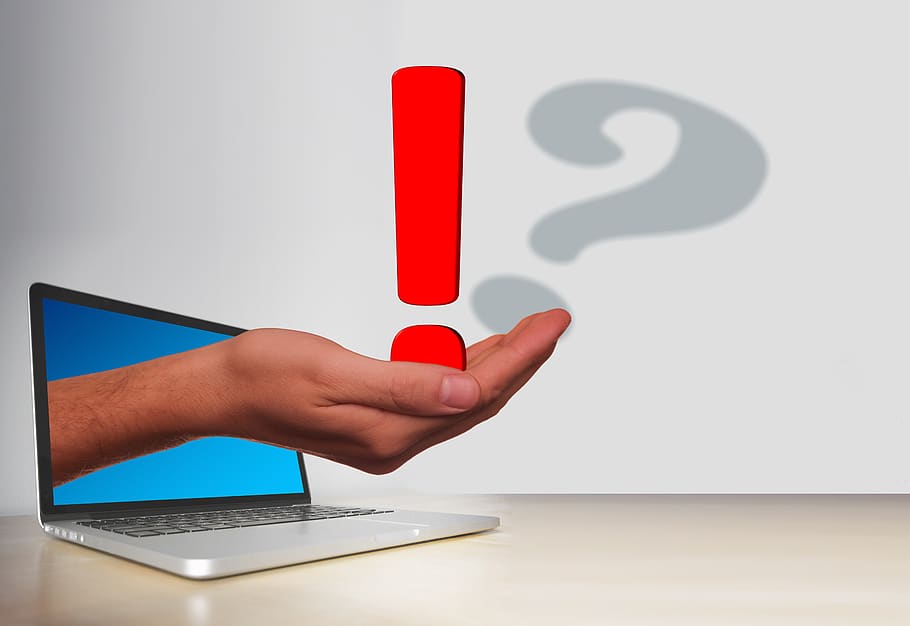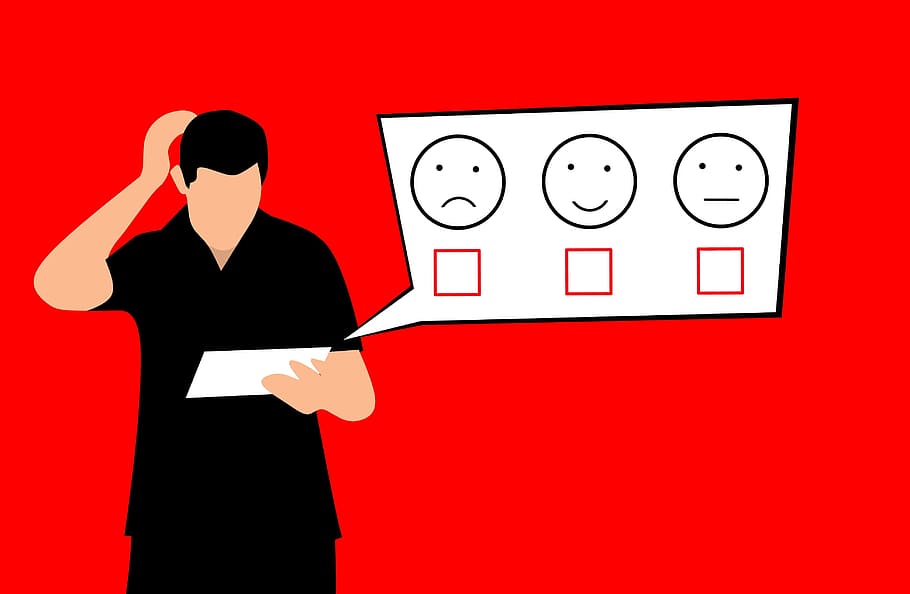
As a reputable ORM agency, Reputation Treatment understands the importance of having a healthy collection of authentic reviews. At least 7/10 consumers trust online reviews like personal recommendations. About 91% of the consumers believe that they will do business with a company with generally positive reviews. As customer testimonials become more important for influencing consumer purchase and SEO, some companies have also resorted to generating fake reviews.
Reasons Why Fake Reviews Are Becoming a Problem
While negative reviews could be a source of a nightmare to the business owners, fake reviews on Google could even be worse. The way they could damage your business reputation could be unimaginable, and you may be unknowingly giving your rivals an advantage. In this article, we will highlight some of the reasons why you should remove them.
82% of Consumers Have Been Unknowingly Reading Fake Reviews

Based on the research released by BrightLocal, at least 82% of consumers have read a false review in the past year. Moreover, the numbers are higher among consumers ages 18-34 years old, wherein a massive 92% of them claimed that they encountered one. The increasing volume of fake reviews on products could be a cause of concern. It highlights how prevalent paid reviews are and how it is imperative to be vigilant to avoid receiving substandard services and products.
Fake reviews have managed to invade even reputation management that threatens the reliability and trustworthiness of the customer feedbacks and the whole ORM process. It is only expected that we will see a dramatic decrease in consumers’ confidence in this user-generated content. Nonetheless, it should still not be a source of panic. While it continues to emerge, it is essential to mention that some listing and database sites now have a verification process before you can post a review.
92% of Consumers Ages 18-34 Have Read Fake Reviews

We’ve already mentioned this above. Nonetheless, the numbers on different age brackets are also alarming. 89% of those in the younger range said they’d read fake product reviews last year. 74% of those around 34-54 age have seen these and about 59% on those 54 and above. It is interesting to note that those in 18-34 know better how to spot fake reviews. Perhaps their level of exposure to the digital world has allowed them to determine what is fake or not. They are much savvier, and it would be easier for them to navigate the intricate online landscape.
This level of wariness should send a signal to the business owners. For instance, if your target market is 18-34 years old, you could be giving up the trust of your consumers over a one-time profit. While it has already been proven that online reviews can influence the decision of the consumers, what will happen if your business page is filled with fake reviews on products? Statistics also showed that the next generation is also being programmed to detect any false claims about the business. Once this happens, it would be difficult for you to find new ways to regain the consumers’ trust.
Reviews that Come with Repeated Exclamation Points Possibly Came from Unverified Consumers

This MIT research showed how fake reviews would usually come with repeated exclamation marks (i.e.!!!). Some business owners or marketers may think that using repeated exclamation points may not be a cause of concern, but the implication would be especially troubling. Multiple-use of exclamation marks indicates heightened emotion like frustrations. It mimics the way people will talk on social media. Therefore, adding this to reviews can lead people to believe that it is a fake review since it is something they use daily. Some marketers or business owners may not immediately notice the effect of deceptive reviews since the impact can also depend upon your target audience. If your prospects will not often use social media, then the possibility that the audience will be swayed is a lot slimmer.
Deceptive Reviews Comes with a Particular Request

Consumers who leave reviews without making any purchase are more likely to add specific requests to their feedbacks. It will not be unusual for you to encounter words like ‘go back to,’ ‘please,’ ‘offer more,’ and ‘bring back’ on fake reviews. These can be pretty problematic to reputation management agencies since they are tasked to give a detailed response on reviews, even on the off chance that they are sure that a verified consumer did not write the testimonial.
The response to the reviews is one factor that influences SEO. Moreover, the answer would be read by around 89% of the consumers. Therefore, the ORM agencies need to formulate a polite and professional response to every review. It sends a message to the public that you treat reviews seriously and value all kinds of opinions of your consumers.
Fake Reviews Influence the Purchase Decision of Consumers

Studies showed that fake reviews have been influencing UK consumers to spend more than $31billion annually. We’ve mentioned before how shoppers will consult online reviews before making a purchase. However, we’ve also found that several companies will engage with third-party providers to write false reviews. However, this practice is forbidden by regulatory agencies. Large listing sites can also place a sanction on you once you have been proven to use this method. They believe that fake Google reviews can be a source of concern since most adults will rely on them to make a purchase.
Understand that their money is at stake here, and they may purchase a product that will not satisfy their expectation due to false reviews. It could be misleading and may encourage the consumers to spend their money on a product they may not have chosen if it does not come with a false review. In some sectors, negative, fake, or paid reviews have a more dramatic impact. Studies show that businesses that belong in the hospitality market are more affected by it.
1/7 Reviews in Trip Advisor is Fake

According to the research made by CMA (Competition and Markets Authority), at least 1 in every seven reviews found in Trip Advisor is fake. It also highlighted how most of the top hotel and accommodation companies in the tourism industry are packed with fake reviews. With this, their popularity has gone up and boosted their rank in that region. However, based on the latest statement of Trip Advisor, they have a list of suspicious companies that are supposedly using this tactic and have received a warning from them.
As we noticed, the small business in the tourism industry will be highly affected by deceptive reviews since their ranked are being pushed down the bottom. Using fake reviews on products or, in this case, service means that you are at risk of disappointing the traveler. Understand that you are giving false expectations when you are using this strategy. On the other hand, independent accommodations and hoteliers who are not employing this tactic could be missing business opportunities. Today, Trip Advisor added a feature that allows users to report any deceptive or suspicious reviews. Posting a false testimonial, employing the service of third-party agencies to leave reviews, and giving incentives, are all against the policy of Trip Advisor.
61% of Amazon Reviews under the Electronic Category are Fake

The Washington Post released a report showing that 61% of electronic reviews on Amazon are false. Fake reviews have been particularly affecting Bluetooth speakers and Bluetooth Headphones. There were also some impacts found on products under diet pills and testosterone pills. The analysis showed that around 50.7% of the Bluetooth headphone reviews are fake. About 55.6% of the reviews on the top 10 companies under the weight loss pills category are deceptive, and 58.2% on the Bluetooth speakers. Moreover, 67% of the reviews on testosterone pills are fake.
Amazon is a platform that dominates the eCommerce industry. It accounts for about 5% of the whole retail sales in the US and 54% of online sales. It registered 54% of the product searches, making it a more powerful tool for the merchant than Google. The increasing presence of fake reviews on this platform has become a cause of concern among consumers and merchants. There may be some benefits that deceptive reviews can bring. However, it is giving more presence to a particular company that does not deserve it. It will be more challenging for the authentic sellers to be reached by the shoppers. According to the study, fake reviews have a devastating effect, especially on small businesses. It sends a message to them that it is impossible to make a sale if you choose to abide by the rules and policy of Amazon.
54% of Consumers Will Not Buy from a Company with Fake Reviews

By looking at the statistics we mentioned above, you probably understand the damaging impact of fake reviews. In addition, another study showed how it could detrimentally affect your business. It simply makes sense that consumers need to be wary of a company with false reviews. Therefore, once they find out that you have this, it would lead to distrust of your brand and product. Avoid employing this strategy at all costs.
If the customer finds out that you are using fake reviews on products, you could be missing turning away 54% of your potential customers. Therefore, a detailed, informative, and authentic review must be a priority for your business.
How to Spot Fake Reviews

Consumers should not blindly trust the overall star rating of the company. A perfect ten score could influence you to make an impulsive purchase. However, the actual quality of their service could be further from their rating. Be sure that you will pay attention to some suspicious reviews. You could be paying for something that will not be equivalent to your money’s value. Learning how to spot fake reviews will keep you away from disappointments.
Are the Reviews Too Good to be True?

You need to have a healthy amount of doubt and skepticism when you navigate the online world. If you noticed that the local company has an unusually high volume of reviews compared to others in the same category, it could be a red flag. You should be cautious in doing business with them if the reviews are overwhelmingly positive. According to reports, 5 of the best-rated Bluetooth headphones in Amazon have more than 5,000 fake reviews.
Don’t Believe the 5-star Rating

One purpose of using fake reviews is to manipulate the company’s rating and encourage the consumers to believe that they are dealing with a world-class company. However, most of them could end up in disappointments. An ideal way to get a balanced review is to ignore the 5-star rating and look at the 4-star, 3-star, and 2-star reviews. Five stars would probably be a marketing campaign strategy of the business owner, while a 1-star review could be their rivals trying to discredit them.
Be Cautious When Purchasing from an Unknown Brand

While some start-ups are honest and are just trying to find a space in the crowded and competitive market, others will not hesitate to take the fastest route on top of the list. Occasionally, we will see hundreds or maybe thousands of positive reviews from an unknown brand. More often than not, it will be challenging to find more information about the company. It will also be impossible to reach out to them. If you are unfamiliar with the brand, you need to learn how to spot fake reviews. Check their website to see if they are running a legitimate business. They should have valid contact information, so you know who to call if something goes wrong.
Read the Reviews Carefully

Some fake reviews are just spam. If you carefully read the review, you will find out that it is intended for other products or brands. If you encounter these types of feedbacks, it is best to be wary. The product owner could be deliberately manipulating the rating of their product. It is one way to make his brand appealing to the consumers.
Read the Negative Reviews

Negative reviews could harm the business’s reputation, but the consumers can use them to gather essential facts about the product and the company. Not all negative reviews are valid to the consumers. For instance, some may complain about the style of the product, but some consumers are more focused on the functionality. A car buyer could be complaining about the financing option of the dealership, but some are not planning to enroll on a car loan. It would be best if you also looked for the intention of the seller to bury the negative review. For instance, if hundreds of positive reviews follow one negative review, then it could be fake.
Finally, you should also remain aware of your rights as a consumer. If you think the fake reviews have misled you, understand that you can still cancel or return the order and request a refund. Usually, you will have these options 14-days after you receive the order. You will have to notify the seller that you are returning the goods within this date.